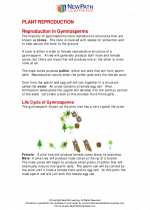Nylon
Nylon is a synthetic polymer that was first produced in the 1930s by a team of scientists at DuPont. It was the first synthetic fiber to be made entirely from petrochemicals, and its invention revolutionized the textile industry. Nylon is known for its strength, durability, and elasticity, making it a popular choice for a wide range of applications, including clothing, carpeting, and industrial materials.
Chemical Structure
Nylon is a type of polyamide, which is a polymer made from repeating units of amide groups. The chemical structure of nylon gives it its unique properties, including its strength and ability to stretch without breaking. The specific arrangement of atoms in the nylon molecule allows for strong intermolecular forces, which contribute to its high tensile strength.
Properties
Nylon has several important properties that make it useful in various applications:
- Strength: Nylon is known for its high tensile strength, making it suitable for use in products that require durability and resistance to wear and tear.
- Elasticity: Nylon has the ability to stretch without breaking, making it ideal for applications where flexibility is important, such as in clothing and hosiery.
- Chemical Resistance: Nylon is resistant to many chemicals, oils, and solvents, making it a versatile material for industrial applications.
- Moisture Absorption: Nylon has the ability to absorb moisture, which can affect its mechanical properties. This property is important to consider in applications where exposure to water or humidity is a concern.
Applications
Nylon is used in a wide range of products and industries, including:
- Textiles: Nylon is commonly used in the production of clothing, hosiery, and outerwear due to its strength, elasticity, and abrasion resistance.
- Industrial Materials: Nylon is used in the manufacture of bearings, gears, and other mechanical parts due to its strength and wear resistance.
- Carpeting: Nylon carpet fibers are popular due to their durability and resistance to stains and abrasion.
- Plastics: Nylon is used in the production of various plastic products, including combs, toothbrushes, and food packaging.
Study Guide
Here are some key points to remember about nylon:
- Nylon is a synthetic polymer made from petrochemicals.
- It is a type of polyamide, with a chemical structure that provides strength and elasticity.
- Nylon has properties such as high tensile strength, elasticity, chemical resistance, and moisture absorption.
- It is used in textiles, industrial materials, carpeting, and plastic products.
- Consider the applications and properties of nylon when studying its use in various industries.
◂Science Worksheets and Study Guides Sixth Grade. Plant reproduction

 Activity Lesson
Activity Lesson
 Worksheet/Answer key
Worksheet/Answer key
 Worksheet/Answer key
Worksheet/Answer key
 Worksheet/Answer key
Worksheet/Answer key
 Vocabulary/Answer key
Vocabulary/Answer key
